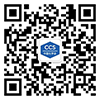FACS PROJECTS
- Term of Reference
- List of Projects 2013-2015
- List of Projects 2010-2011
- ACEN (Asian Chemical Education Network)
- ANAC (Asian Network of Analytical Chemistry)
- ANEC (Asian Network of Environmental Chemistry)
- APFAN (Asian Pacific Food Analysis Network)
- ANRAP (Asian Network of Research on Anti-diabetic Plants)
- ChIN (Asian Chemical Information Network)
- GC (Green Chemistry)
- LCI-MSC (Low-Cost Instrumentation and Microscale Chemistry)
- NPMC (Natural Product and Medicinal Chemistry Network)
- HA (History and Archives)
- ANMC(Sub-Project, Asian Network of Metallic Chemistry)
- List of Projects 2008-2009
- Asian Network of Analytical Chemistry (ANAC)
- Asian Chemical Education Network (ACEN)
- Asian Chemical Information Network (ChIN)
- Asian Network for Environmental Chemistry (ANEC)
- Asia Pacific Network for Food Analysis (APFAN)
- Green Chemistry (GC)
- Medicinal Chemistry and Natural Products (MCNP)
- Asian Network for Research on Anti-diabetic Plants (ANRAP)
- Low-Cost Instrumentation-Microscale Chemistry (LCI-MSC)
- History and Archives of FACS (ARCHIVE)
- Project Reports and Announcements
- Application for FACS Projects in 2004-2005
- Asian Coordinating Groups for Chemistry (ACGC)
- About ACGC
- Minutes of ACGC Meetings
- The Conference: ASOMPS
- Related Meetings
- The Journal: ACGC CRC
Reports of Individual Member Organisations
发布时间:2016年05月05日 来源:中国化学会
5.1 ANRAP
Prof Mosihuzzaman gave a summary of activities for 1996, including scientific and business meetings and workshops, and plans for 1997.
Full details can be found in the written report as Attachment 1.
5.2 CRC Chemical Research Communications
S. Pyne gave a summary of activities in 1996 and plans for 1997, including a proposed budget for 1997-98. He thanked the sponsors of the journal, UNESCO, IFS and IPICS for their support. B. Noller thanked S. Pyne for his efforts in getting this journal up and running. The budget statement was not forthcoming from the treasurer (P Marriot).
Discussions included ways to increase the circulation of the journal and the possibility of publishing on the world wide web with the help of CSIRO in Melbourne. The editor agreed to be look into these possibilities plus he agreed to obtained an ISSN number for the journal and write to Chemical Abstracts Service requesting them to abstract this journal.
The written report is attachment 2a and a copy of the current financial statement on 11-2-97 can be found in attachment 2b.
5.3 Commonwealth Science Council (CSC)
Dr Perera asked M. Singh to report on CREN. M Singh reported that a proposal to CSC to upgrade the Project CREN to a Flagship status was favourably received by the CSC Executive Committee held in London in April 1996. Central Leather Research Institute India has offered to domicile CREN if it receives flagship status. The Review Committee has drawn up an Activity Plan for CREN in 5 Programme areas and the Programmes for 1997/98 were detailed (see attachment 3).
5.4 International Foundation For Science (IFS)
L. Prage reported that IFS continued its granting programme and the supporting services to the Asian region at the same level as during the last few years. Until June 1996, IFS has granted 141 Asian scientists within its research programme in Natural Products, which covers the IFS activities related to ACGC. The most prominent countries in the region, with the largest member of grantees, are China, the Philippines, Sri Lanka, Thailand and Vietnam, but most of the other countries are also represented with grantees. During 1996 the first grantees in Myanmar and Iran were funded. There are a few new developments which should be of particular interest to the ACGC:
1. Dual grants Starting 1997 IFS will welcome dual grants in the research area Natural Products to encourage cooperation between scientists from different disciplines and with complementary skills.
2. Selected environmental sciences This programme welcomes applications for research grants on various aspects of water quality and biodiversity.
3. Service and maintenance of scientific equipment
Further details can be found in attachment 4.
5.5 International Programme in the Chemical Sciences (IPICS)
R. Liminga reported that IPICS granting has been on an annual basis but has changed to a two- or three-year system starting in 1997. In August 1996 candidate projects and networks were invited to apply for grants for the period 1997-99. After the evaluation procedure 17 projects (Africa: 5, Asia: 6, Latin America: 6) and 11 networks (Africa: 5, Asia: 3, Latin America: 3) were selected for continued support.
Further details can be found in attachment 5.
B. Noller congratulated R. Liminga for his contributions before his retirement from IPICS this year and proposed that R. Liminga be a permanent adviser to ACGC. This motion was carried by the committee. M. Singh proposed that a certificate or plaque be given to R. Liminga and that he would look into its production.
5.6 Network of Instrument Technicians and Users of Bangladesh (NITUB).
Prof Mosihuzzaman outlined instrument and training programs for 1996-7 in Bangladesh. NITUB had successfully repaired instruments at research establishments around the country using locally trained personnel. It was noted that a similar Network now exists in Nepal. After some discussion it was concluded that a similar program could be developed in Vietnam. NITUB suggested that they would be happy to provide advice and assistance.
Full details can be found in attachment 6.
5.7 Federation of Asian Chemical Societies (FACS).
B. Noller and M. Singh reported on FACS activities in 1996 and future activities in 1997, including the 7th ACC in May 1997 in Hiroshima. A number of applications had been received from scientists from developing countries requiring financial assistance to attend this conference. Three executive meetings were held in 1996, in Dhaka, Brisbane and Taipei. FACS awards were determined and these will be presented at the 7th ACC and the names of the FACS foundation lecturer and other invited lecturers were decided.
REPORTS ON PROJECTS UNDER FACS:
5.7.1 Asian Network for Analytical and Inorganic Chemistry (ANAIC).
John Webb reported on the activities of the ANAIC Network, a regional Network of UNESCO that is now also a project of the Federation of Asian Chemical Societies, which provides an annual allocation of (US) $500. The Network of necessity links to other projects, organisations and meetings to promote its goals of encouraging chemical cooperation in analytical and inorganic chemistry. Some of these activities may be held outside the Asian Region, from time to time. A particular development is the retirement of Dr. M. Mohinder Singh of Malaysia, a long-term leader of ANAIC as joint Director with Assoc Prof. Webb. The Network is pleased to have Professor Tabata Masachi of Saga University, Japan to provide a strong link to the Japanese chemistry community. Similar support has been offered by the inorganic chemists at University Kebagsaan Malaysia (Prof. Ibrahim Baba, Dr. Yang Farina).
Activities 1996-1997 are detailed in attachment 7.5.7.2 APFAN
5.7.3 ANIEC
5.7.4 CHIN
5.7.5 ACEN
5.7.6 Low Cost Equipment
5.7.7 Asian Network on Cleaner Technology
no report was available no report was available B. Noller reported that a world wide web page had been developed by D. Winkler that included details of FACS activities (see attachment 8 for details). The possibility of having a web page for ACGC and ACGC Chem. Res. Commun. was raised. report given? Prof Sane produced 1 book on selected articles on chemical education for Chemical Societies in FACS no report was available.
5.8 BOTANY 2000
5.9 Royal Australian Chemical Institute (RACI).
B. Noller, the president of the RACI in 1996, reported on the regional and international activities of the RACI. These included:
- Heads of Departments of Chemistry meeting in Canberra, it was suggested that these meetings may be useful for other Chemistry Societies in Asia.
- 2000 National Convention?
- the possibility of holding the 2001 IUPAC conference in Australia
- Australian National Chemistry Quiz and it was noted that similar quizzes are running in Fiji, Vietnam and Singapore.
5.10 Chemical Society of Vietnam (CSV)
Prof. Le Van Nguyen outlined the structure, aims and duties of the CSV. The CSV publishes information on a number of areas related to chemicals in the workplace, including information on agricultural chemicals to farmers. It holds a registrar on chemical accidents and assists in the supervision of the import of chemicals (see attachment 9a for details).
Prof Nguyen thanked B. Noller for organising a mining workshop in Vietnam and welcomed collaboration with foreign scientists and foreign chemical societies.
Prof Nguyen submitted a proposal for fellowships to train post-graduate students and indicated CSV's desire to be part of the international network for the development of clean technology (see attachment 9b for details)..
J. Webb suggested the CSV should seek formal links with the Chemical Societies in Laos and Cambodia. Prof Nguyen indicated some links existed with Thailand and China.
J. Cannon suggested the CSV request foreign embassies, after approval from their Government, for funding an exchange program with other countries.
W. Taylor suggested money for basic research infrastructure in Vietnam (books, equipment, libraries etc) was essential.
5.11 Chemistry in Bhutan, Nepal and Myanmar
W. Taylor reported on his visits to the above countries in 1996 and the difficulties facing scientists in these countries. Modern text books, research journals and modern research equipment are desperately needed.
See attachment 10 for full details.
5.12 UNESCO Jakarta
Fumin Zhang reported on the activities of the regional UNESCO Network on the Chemistry of Natural Products in SE Asia in 1996.
See attachment 11 for full details.
5.13 UNESCO Vietnam
A representative was not present.
5.14 COSTED
B. Noller ?
5.15 Other
There were no other reports.
. no report from N. Marchant (the Asian Network for Research on Antidiabetic Plants)


